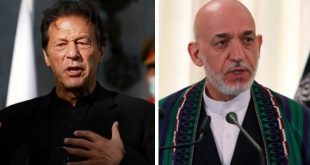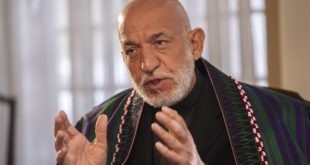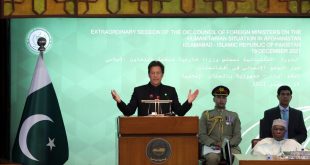As security situation is deteriorating, the government is trying to figure out that how it can effectively address the challenge. There is hardly a remedy left, and not been tested in tackling the monstrous challenge of insecurity. From raising a larger army to forming local militias, from mounting pressure on Pakistan and seeking the support of international community to kicking off peace negotiations with the Taliban, from arresting them and eliminating them to trying to appease and give some benefits to them, there is a long list of the measures already taken. Now this time the government is enlisting tribal elders’ support. Advisor to President Ashraf Ghani on tribal affairs held a meeting with tribal elders on Monday where he sought support from tribal elders in the reconciliation process with the Taliban. The tribal elders were from different districts of the Kabul province. The aim of the meeting was to know their expert views on how the government can maintain security and restore peace. Now that the government has started off seeking suggestions from tribal elders, the area of this move should be extended to those provinces which are badly affected by militancy.
Indeed counsel of the tribal elders is of utmost importance, especially as this hour. They would be in a better position to support the government as they have seasoned views to share with Kabul. Since the deleterious revolution had its origin in provinces, therefore, it will be tribal elders and influential people from the provinces who can support the government to rebuild the country. Throughout Afghanistan’s history, tribal elders had played positive role in ensuring peace and strengthening the national unity. The government alone cannot win the war. It is the support of the general public that provides strength to the government in fighting this monstrous challenge. This is worth satisfaction that the government hadn’t shut the door on peace talks. The government reiterated Sunday that the door for peace negotiations is open but only for those who accept Afghanistan’s Constitution and join the peace process. President Ashraf Ghani’s deputy spokesman Sayed Zafar Hashemi said that those who are not ready to shun violence will get the same response from the government. This statement comes at such a time when Pakistan’s Prime Minister Nawaz Sharif, in his meeting with the US President Barack Obama last week, said in a joint statement that they would ensure all the Taliban groups, including the Haqqani Network, are unable to operate from the soil of Pakistan. Such statements ridicule the feelings of Afghans. They tell the world quite another story from what they do on the ground. The United States and Pakistan agreed to take action against Lashkar-e-Tayyiba, a militant outfit that allegedly carries out attacks against India. If the two can agree against Lashkar-e-Tayyiba, the two could have announced a similar statement against the Haqqani Network and the Afghan Taliban. Though challenges are there, and those who are pretending to be friends of Afghanistan are not sincere, yet Kabul has no other option except resuming peace talks. Prolonging the war is not the ultimate solution.
 Afghanistan Times
Afghanistan Times



